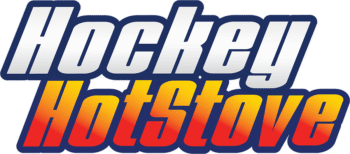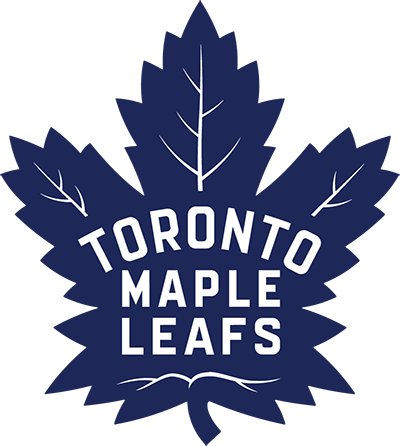Gary Bettman’s had had a roller coaster tenure as the commissioner of the NHL. It puts him a tier below Frank J. Selke, the president of the league, who made it a credible one from 1917 until 1943. Bettman took the commissioner job in 1993 and has taken plenty of hits since.
The three lockouts in a 20-year span will always be held against him. The New York Rangers winning the Stanley Cup in 1994 was a great moment for hockey and could have easily catapulted the NHL into the mainstream for sports fans. Instead, the league locked its fans out, killing any momentum to grow the game (as did the lockouts in 2004 and 2013).
Broadcasting remains a glaring weakness of the NHL, with games often blacked out or exclusively on ESPN+, a platform that many fans don’t have. Likewise, the billboard ads are a related issue, one that shows Bettman and the networks care more about their bottom line than the fans.
When it comes to Gary Bettman, remember this. He lives to serve the NHL owners and rightsholders. There is nothing else — nothing — on his compass. Not the fans. Not the players, past or present. That has kept him in power for 32 years and counting. In some ways, that’s been good for the growth and success of the league. In others, it’s been a detriment. There’s a reason why one thing that unites hockey fans across the USA in Canada is booing Bettman wherever he goes.
The schedule is another easy fix for Bettman, yet it’s a SNAFU. There will be 14 games on a typical Tuesday or Saturday but only three on a Wednesday or a Friday, and the inconsistency makes it hard for a casual fan to keep up with the NHL (it’s feast or famine on most nights from a viewership perspective).
The overall disconnect Bettman has with the fans is an underlying theme in most of the above issues. He leans into, it. Oddly, Bettman relishes the boos. He likes to be the heel, smiling and exhorting louder catcalls. Like Roger Goodell, he wants to be the designated “bad guy.” Authority figures have little choice. It’s a job reality. Most, however, dislike that aspect. Bettman has fun with it. Maybe he figures that disapproval beats indifference.
Bettman is now on a run or a heater in terms of successful moves and moments for him and the NHL. The post-COVID era (2022 and onward) might be his best yet as commish.
The salary cap trends upward again. After years of a stagnant cap, teams have liquidity again. The average player will see a raise, even with escrow. The bump in pay is still small potatoes compared to the other leagues, Nevertheless, it’s a step in the right direction.
The league is growing in popularity as well. For all the issues ESPN has given the NHL (from ESPN+ to only a handful of regular-season games on the network), it’s allowed sports fans who wouldn’t watch or follow the league to do just that.
There’s stability in the NHL and its development league, the American Hockey League (AHL), for the first time in a while. It paves the way for an inevitable expansion, which is coming either when Bettman retires or right before he does.
Then there was the Four-Nations Faceoff. The event was such a success that it removed any debate about whether the NHL should go back to an All-Star Game or not. The only question is which international tournaments the league will turn to in the future. Bettman found a replacement for the All-Star Game, something that always troubled the league, that’s better than anything the other major sports have come up with, and it gives the NHL an advantage.
The southern markets are grouped together into this successful run for Bettman, especially with the success the Florida teams are experiencing. The Tampa Bay Lightning won the Stanley Cup twice in the recent decade, and the Florida Panthers are the reigning back-to-back champions.
The last time a Florida team didn’t represent the Eastern Conference in the Final was in 2019. The Floridian and southern success is a reflection of Bettman’s tenure in a way, one with plenty of highs and lows.
The Experiment
When Bettman took over in 1993, expansion was inevitable. The NHL went from six teams to 12 to 20. It headed towards 30 and eventually 32 by the time the 1990s rolled around. The NHL already moved out west and saw success in non-traditional markets. The next stops were the South and Southwest (with Carolina, Nashville, and Columbus mixed in for good measure).
For Bettman, this was a desire to tap into markets that would be great for hockey. Dallas, Phoenix, and Southern Florida were populous areas with passionate sports fans. Great teams would do wonders in these markets!
But, there’s no ice in Florida! Hockey won’t work in the South or the Desert! Fans aren’t interested and have other options for entertainment! These towns are too transient to have loyal fan bases! Bettman heard it all. He knew this plan carried risks with potential failure falling directly on him.
Yet, he was patient, knowing the rewards these markets would provide. And in 32 years, he’s taken the hits any time a team has failed in a non-traditional, warmer climate market.
The Failures in the Southern Markets
When the teams in the south struggled, things went from bad to worse. The low points in these markets are always lower than in a traditional market with an inherent love for hockey.
The Atlanta Thrashers moved to Winnipeg in 2011. It was the second time a team from the city moved to a Canadian market and saw significantly more success afterwards (you’ve probably heard of the Calgary Flames but not the Atlanta Flames).
By the time the Thrashers left Atlanta, they went out with a whimper. Attendance was in a downward spiral, and the team wasn’t wanted. A mess of an ownership group didn’t help the cause either (on a side note, ESPN used to be a bastion for blunt columns like these; those were the days).
The Arizona Coyotes were similarly run into the ground this decade. After years of struggling in the desert, they went from rebuilding to pulling the plug on all expenses. Their ownership, led by Alex Mereulo, struggled with arena payments and spent minimally on the team, eventually moving the Coyotes to Mullett Arena, which, looking back, is a pitiful way for a team to go out.
It was seen as temporary with a new arena on the horizon but with incompetent ownership running the team, Mullett went from temporary to a short-term home, one that frustrated Bettman (the Sacramento A’s in baseball are a case in point for what happens when incompetent owners are given time to try to find a solution). When the arena proposal was voted down in Arizona, it became clear that a move needed to be orchestrated while leaving Mereulo behind in the process.
The failures in a non-traditional market are a reminder that it’s better to have angry fans than disinterested fans. Atlanta learned that a non-competitive and poorly run team will have fans following the other sports teams in the area. The Coyotes saw this as well, especially when the team wasn’t good. Both Florida teams had the same issues. When these teams are bad, the fans disappear, and you can travel around the city and almost forget that an NHL team is there.
The Highs of Florida on Full Display
Bettman knew these markets would work with time. Moreover, with competent ownership in place, these markets would appeal to the fans in the area.
Once the Lightning and the Panthers had great owners, owners willing to spend big on the teams, they started to see progress. It had a trickle-down effect as great owners brought in the right leadership in the front office, which brought in great coaching, and then found the on-ice talent after that.
The on-ice product was great, and the market boomed. The same thing, interestingly, happened in Las Vegas, which had great leadership from the top down, leading to a Stanley Cup title in 2023 for the Vegas Golden Knights, a franchise that only entered the NHL at the start of the 2017-18 season.
Florida was the sleeping giant in the NHL. Now that it’s woken up, it’s hard to see either Florida team slowing down anytime soon. The Lightning were a modern dynasty with two titles and four Final appearances in eight years. The Panthers followed suit. The team won the Eastern Conference Champioship three straight years. They are now back-to-back Stanley Cup champions. Until proven otherwise, they are the team to beat in 2025-26.
Now, the Panthers are a destination, and South Beach is a destination. If you told someone that 20 or even 10 years ago, they’d assume you meant as a retirement home, not for hockey. Florida is now the lightning rod around the league as the state with the tax advantage.
It wasn’t always this way, and it’s still not applicable for every team in a tax-free state (for example, the Seattle Kraken play in Washington, a state known for no taxes but Seattle isn’t seen as a destination). However, the well-run teams can use the advantages to not only be great but also stay that way for a while.
The weather and lack of taxes in the southern markets make them great spots. Well, it’s great for business when the local teams win repeatedly. When non-contenders, it’s comparable to sending a player to the middle of nowhere. They become invisible to the rest of the NHL.
Bettman legacy Defined by the southern franchises
The Florida experiment showed Bettman’s willingness to take a risk and try new things out with a patient approach. He won’t change everything like Adam Silver, who runs the NBA and is constantly tweaking the rules and formats, only to dilute the product. Likewise, he won’t remain stuck in his ways and in the tradition of the sport, like Rob Manfred in MLB, a league that is adamantly against change.
Bettman is somewhere in the middle. Nevertheless, he’s willing to look for ways to improve the NHL. Rather, he cares if the ideas fit his agenda and vision.
It’s led to a fair share of criticism in the three decades and change. The urge to keep the Arizona experiment alive showed his stubbornness and his refusal to admit defeat. There were flops. However, Bettman’s obsession with non-traditional markets worked out in the big picture. The failures showed what must happen for other uncharted territories to find both on-ice and off-ice success.
Bettman wasn’t wrong to push back against the tax question. He focused on leveraging these markets ever since he became the commissioner. For years, Bettman took the heat. Critics clamor now for ways to even the playing field. The difference: It goes in the opposite direction. The Panthers became a juggernaut. The Tampa Bay Lightning did it right before the Panthers.
No one saw it coming. That is,, except, for the commissioner of the NHL. Give credit where it’s due. Bettman is nothing if not devoted to his pet projects.

